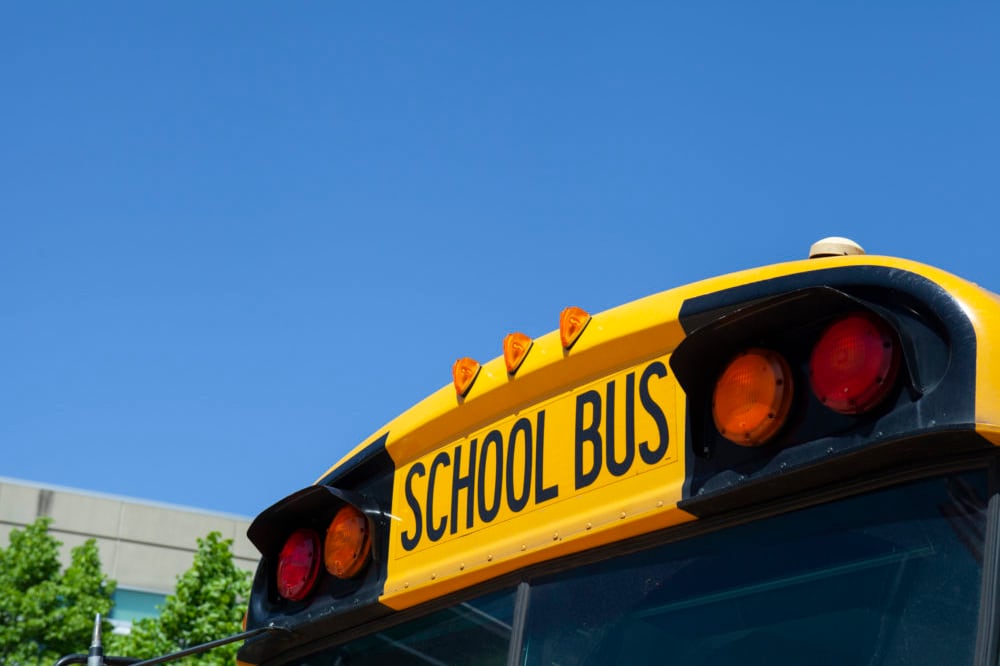Sign up for Chalkbeat Chicago’s free daily newsletter to keep up with the latest education news.
Illinois public school districts benefited from an uptick in a local tax on corporate profits in recent years. But the surge in revenue is expected to end, leaving school officials to grapple with tighter budgets.
The shift comes as federal COVID recovery money dries up, and local education advocates fear that the recent addition of $350 million to the state’s education budget isn’t enough to match the needs of schools.
The state’s evidence-based funding uses data from previous years, which means districts that saw unexpected gains from this unique tax on local businesses could receive fewer state dollars in the future. As districts finalize their budget for this upcoming school year, those receiving fewer state dollars will have to figure out how to fill in the gaps.
According to a new research brief by the Center for Tax and Budget Accountability, revenue from the tax — known as Corporate Personal Property Replacement Tax, or CPPRT — more than doubled between 2020 and 2023 from $1.5 billion to more than $3 billion. The spike happened because more people were spending money, inflation was high, and many businesses raised prices, the report said.
The additional money meant more school districts came closer to what the state considers adequately funded. The report said revenue from the tax on corporate profits helped bridge the gap between state funding and local funding for districts by $1.9 billion.
Now, the state is projecting that revenue surge will end. But the state’s funding formula for K-12 schools will continue to report that districts are getting more local dollars than they actually are because CPPRT revenue is two calendar years behind the current fiscal year. For instance, the amount of revenue a district collected for fiscal year 2025 is calculated from calendar year 2023.
Elaine Gaberik, research associate at the Center for Tax and Budget Accountability and co-author of the report, said this is a major concern for districts. The lag time will throw off the state’s evidence-based funding formula calculation, making it seem as though many school districts are closer to being adequately funded when they may not be, she said.
“While those funds were great, they’re not expected to continue,” she said.
Chicago Public Schools was one of many school districts that got less additional state funding in recent years, in part, due to the boost in revenue from the tax on corporate profits. In 2022, the district was recategorized as having less need by the state’s funding formula and received fewer new state dollars for fiscal years 2023 and 2024.
A spokesperson for Chicago Public Schools said in a recent statement to Chalkbeat that while the district is dealing with multiple budget challenges such as the end of COVID-19 relief funds and less local and state funding, the district is trying to keep cuts away from classrooms.
“The district has implemented a new school funding formula for school year 2024-25 with a focus on maintaining services and priority investments while identifying additional revenues and spending efficiencies throughout the district’s $9.4 billion budget,” the statement read.
Chicago has yet to release their overall district budget, which is usually announced in June. However, the district released school level budgets that show 150 schools are expected to have fewer staff members.
Rockford School District 205, located in Northern Illinois, also saw a jump in revenue from the tax on corporate profits and was reclassified by the state as needing fewer state dollars to fund schools.
In 2024, Rockford saw a drop in state funding when compared to 2023. The district had about 5% fewer low-income students and saw an increase of 102% in CPPRT revenue. The district received almost $5.9 million more than they expected in fiscal year 2024 when compared to 2023. Rockford got a roughly $8.8 million increase in 2023, but in 2024 state dollars only increased $2.9 million, according to state data.
Greg Brown, the district’s chief financial officer said his department had to really “sharpen their pencil” to figure out a balanced budget. The district will postpone buying new buses and will not be able to backfill school staff positions, he said.
Brown said due to some past planning, the district is in a stable financial position this year, but he worries about the 2025-26 school year.
“The state is already talking about potentially not having the same kind of funding levels going forward,” said Brown. He said Rockford officials will start preparing for what the 2025-26 school year budget might look like in the fall.
Samantha Smylie is the state education reporter for Chalkbeat Chicago covering school districts across the state, legislation, special education and the state board of education. Contact Samantha at ssmylie@chalkbeat.org.






